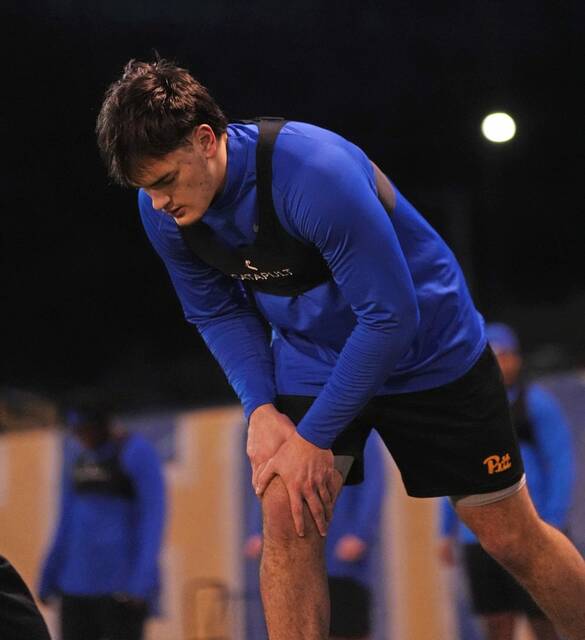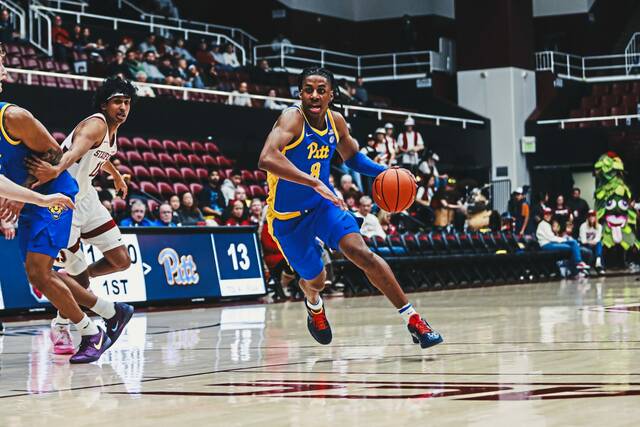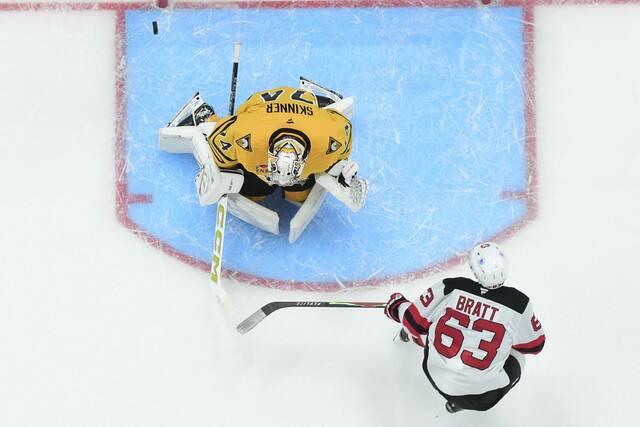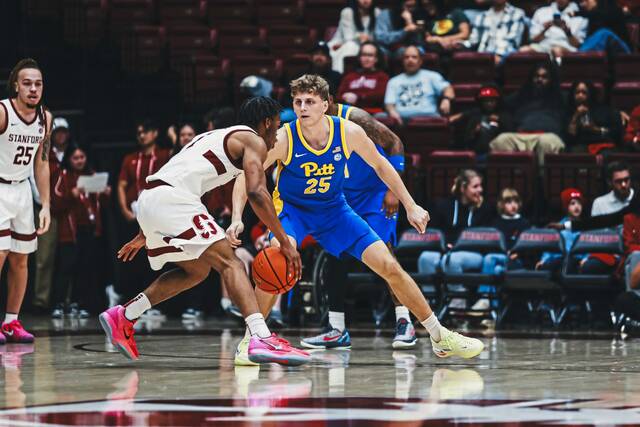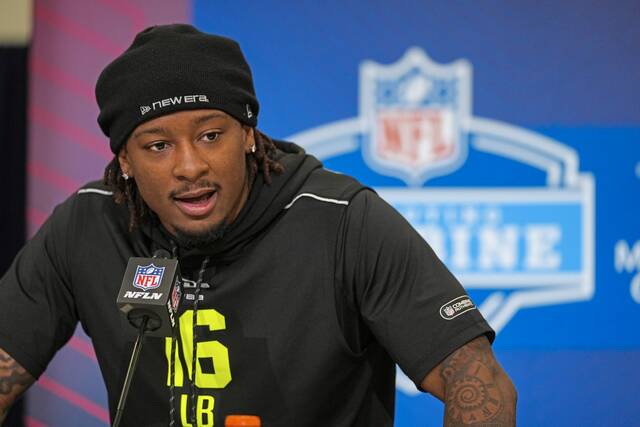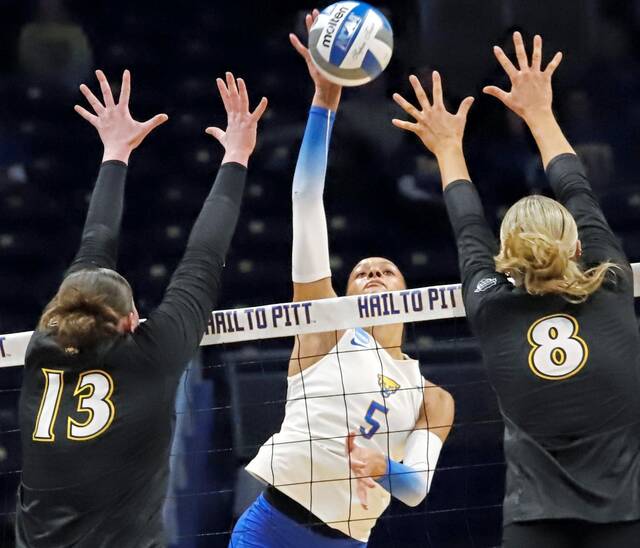Monday’s Supreme Court loss for the NCAA in the Alston case got a ton of attention nationally. But it could be years before a substantive change comes as a result.
Michael McCann is a sports legal analyst for Sportico and was a longtime contributor to Sports Illustrated. He’s also a professor of sports and entertainment law at the University of New Hampshire and testified before Congress in the college sports name, image and likeness (NIL) debate.
He joined me for Wednesday’s “Breakfast With Benz” podcast to outline what this week’s decision really means. McCann
“It’s not going to be immediate,” McCann stressed. “The Alston case began eight years ago. The (Ed) O’Bannon case (which led to next week’s implementation of name, image and likeness rights for student-athletes in seven states) was eight years. The swift change is not going to happen overnight. But what we will likely see is a gradual set of changes.”
As McCann summed up Monday, the unanimous defeat of the NCAA by the justices doesn’t mean that your alma mater is now going to start cutting checks to every athlete on game day.
And, as you just read, we still may be years away from that happening.
Instead, it simply means the court concluded that the NCAA (and its member schools and conferences) violated Section I of the Sherman Antitrust Act.
This violation stems from members agreeing to limit how much each can compensate athletes for academic-related costs. Specifically, limitations on how schools (and conferences) reimburse or pay athletes for computer costs, study abroad programs, internship opportunities, scholarships to attend vocational schools and other academic-related expenses.
So, if your kid is in fourth grade and is a pretty good athlete, maybe he/she will be able to start cashing checks for their athletic skills. What happened Monday, though, did little more than grease the wheels toward that end.
Of course, the NCAA sees the possibility as a threat to its long-held interpretation of “amateurism.” An interpretation that it has used repeatedly to mixed legal results over the years. But one that may change vastly over the next decade.
“The model of amateurism that you and I grew up with will be really different for young people now. They are going to see college athletes get more,” McCann said.
On Monday, McCann theorized that one potential way for the NCAA and its legal opponents to meet in the middle is to — ironically — save amateurism by having the NCAA’s athletes unionize and sign a collective bargaining agreement.
The irony: Could NCAA amateurism be saved by players being declared employees, unionizing and then entering into a collective bargaining agreement with the NCAA and member schools? That would be a stunning conclusion but is plausible since CBA terms are exempt from antitrust law. https://t.co/1SdDF5qDD2
— Michael McCann (@McCannSportsLaw) June 21, 2021
But now, with some reflection, McCann doesn’t even see that as a possibility.
“It’s so complicated because if you are a student at a public university versus a private university you are subject to a different area of labor law,” McCann warned. “Private university students are subject to the National Labor Relations Act, which is a federal law. Whereas if you are at a public university, it is state law. And state laws are all over the board on if an athlete could be an employee. But even if an athlete could be an employee at a public university, some states don’t allow unionization of public employees.”
Did you get all that? Welcome to the bottom of the wormhole.
“It’s just so complicated,” McCann concluded.
Good. Thanks, Michael. I thought I was the only one having trouble keeping up. Maybe this is why we are almost a decade away from figuring out all of this stuff.
Because of that, McCann also pointed out a perceived doomsday scenario for national college sports.
In other words, the NCAA as an institution could be legally picked apart to the point that it becomes impotent in its attempts to organize. And as a result, we may just see random fiefdoms of regional conferences and sports operating independently as conferences with no national governance.
“Maybe the fiefdoms is the way to go,” McCann said.
“There’s an argument that the conferences should be autonomous. Why is the SEC in the same overall association as a conference that is much smaller? It’s a very different creature, in a way. The NBA isn’t in the same market as a G-League team.”
That makes sense. But it’s not a lot of fun, is it?
That kind of discussion almost makes it sound like we are moving toward making college sports nothing but a series of high school governing bodies like the WPIAL.
Does that mean Pine-Richland can go to the Rose Bowl? Or Chartiers Valley can go to the NCAA Tournament as a No. 1 seed?
We may not be all that far away from those silly analogies making a lot more sense.
In Wednesday’s podcast, Michael McCann discusses the future of NCAA litigation, the potential impact of Title IX and the looming questions about NIL rules.
Listen: Tim Benz talks about the future of NCAA litigation with sports legal analyst Michael McCann



